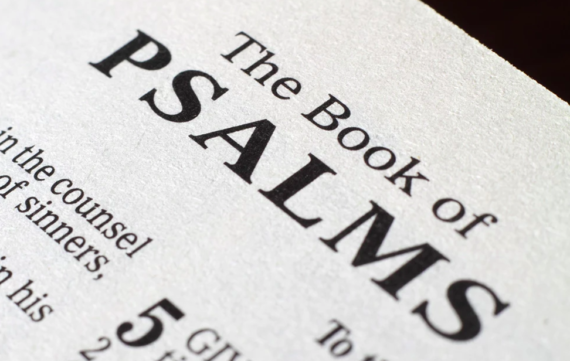The individual lament is the most common type of Psalm. This is so true that one might fear that most lessons drawn from the Psalms will have a sameness to them. But the realities and uncertainties of life make it appropriate that we be brought to think often on the matters that made the psalmists lament.
In many parts of the world, our era is more peaceful than was theirs. We are not threatened with violence so often as they. But there is plenty to make us afraid, and there is much for us to learn from those who said, “When I am afraid, I put my trust in you” (3).
The problem in this psalm is not illness; nor is it the treachery of a former friend; this time it is a large number of enemies who appear able to trample the believer. “Be gracious to me, O God, for man tramples on me; all day long an attacker oppresses me; 2 my enemies trample on me all day long, for many attack me proudly” (1-2).




He is afraid. He admits it. Courage does not mean absence of fear, it means doing what is right even if you feel afraid while doing it. We must not condemn ourselves for feeling fear. God’s people have always experienced fear (1 Cor 2:3; 2 Cor 1:8).
And fear will recur. Even if we succeed in putting it down by faith, it may well return. The wording of verse 3 seems to imply recurring fear, the fact that he returns to a recounting of his problems may also indicate this.
It is not an act of faith to suppress fear by our own efforts. If we should succeed in doing so it would be a disaster, for then we would be overcoming apart from God (2 Cor 1:9). Rather, this psalm would teach us to put our trust in God.
This trust in God has two facets. God is trusted for deliverance. God is trusted for justice. An account is being kept, as he states in verse 8, “You have kept count of my tossings; put my tears in your bottle. Are they not in your book?” The score will be settled. Some would say that this is wrong from a Christian point of view. That misguided notion is heretical. The point of Christianity is not that justice will no longer be done, or that we ought not to desire that justice be done. Rather, the difference from the Old Testament to the New Testament is the realization that justice has been done, that all scores have been settled, all debts have been paid in Christ.
Lastly, we note that this faith in God is grounded in God’s word. (“In God, whose word I praise, in the Lord, whose word I praise,” vs. 10; cf Rom 10:17). Too many people have a faith that is really a faith in themselves, a faith placed in their own faith, rather than a faith in the God, who is revealed in the Bible.
We all find ways to cope with fear, but not all those ways are right. Is our trust a trust in God? Are we relying on self, on the system, or on a god of our imagination, rather than upon the God of the Bible?

